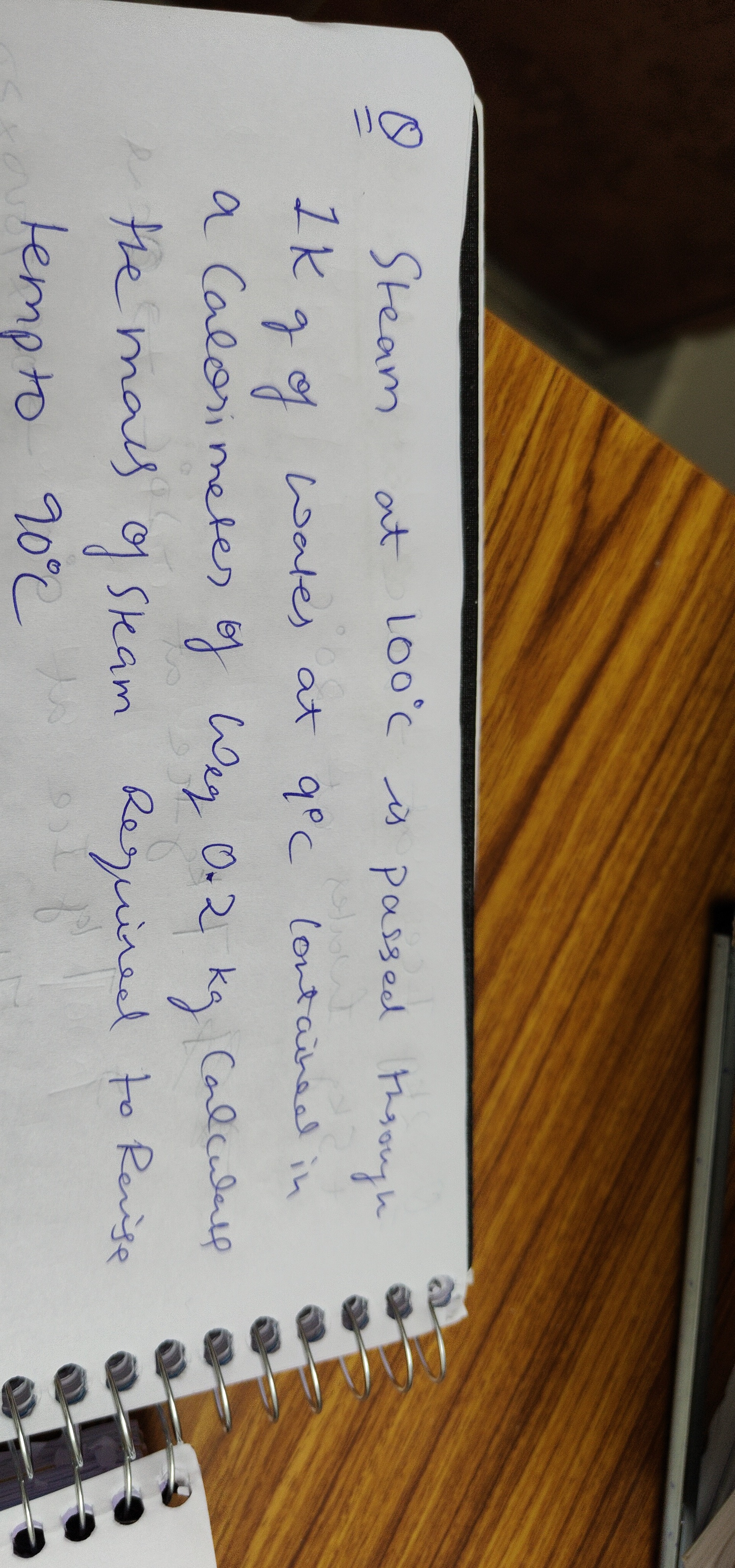Question
Question: Steam at 100°C is passed through 1 kg of water at 0°C Contained in a Calorimeter of mass 0.2 kg. Cal...
Steam at 100°C is passed through 1 kg of water at 0°C Contained in a Calorimeter of mass 0.2 kg. Calculate the mass of steam Required to Revise Temperature to 20°c

32.86 g
45.21 g
21.55 g
50.00 g
32.86 g
Solution
The problem involves a calorimetry scenario where steam at 100∘C is introduced into water and a calorimeter, both initially at 0∘C. The goal is to find the mass of steam needed to raise the final temperature to 20∘C.
Assumptions:
- The initial temperature of water and calorimeter is 0∘C.
- The specific heat capacity of water (cw) is 4186J/kg∘C.
- The specific heat capacity of the calorimeter material is assumed to be that of copper, cc=385J/kg∘C.
- The latent heat of vaporization of steam (Lv) is 2.26×106J/kg.
- The steam, upon condensation, becomes water at 100∘C, and then cools down to the final temperature.
Given:
- Mass of water (mw): 1kg
- Initial temperature (Tinitial): 0∘C
- Mass of calorimeter (mc): 0.2kg
- Temperature of steam (Tsteam): 100∘C
- Final temperature (Tfinal): 20∘C
Calculations:
-
Heat gained by water: Qgain,w=mw×cw×(Tfinal−Tinitial) Qgain,w=1kg×4186J/kg∘C×(20∘C−0∘C) Qgain,w=1×4186×20=83720J
-
Heat gained by calorimeter: Qgain,c=mc×cc×(Tfinal−Tinitial) Qgain,c=0.2kg×385J/kg∘C×(20∘C−0∘C) Qgain,c=0.2×385×20=1540J
-
Total heat gained: Qgain,total=Qgain,w+Qgain,c=83720J+1540J=85260J
-
Heat lost by steam: Let ms be the mass of steam. The steam first condenses at 100∘C and then cools down to 20∘C.
- Heat lost during condensation: Qcondense=ms×Lv=ms×(2.26×106J/kg)
- Heat lost during cooling of condensed steam (water) from 100∘C to 20∘C: Qcool=ms×cw×(100∘C−20∘C)=ms×4186J/kg∘C×80∘C Qcool=ms×334880J/kg
Total heat lost by steam: Qlost,s=Qcondense+Qcool=ms×(2.26×106)+ms×334880 Qlost,s=ms×(2260000+334880)J/kg Qlost,s=ms×2594880J/kg
-
Equating heat lost and gained: Qlost,s=Qgain,total ms×2594880J/kg=85260J ms=259488085260kg ms≈0.032856kg
Converting to grams: ms≈0.032856×1000g≈32.86g
The mass of steam required is approximately 32.86g.
